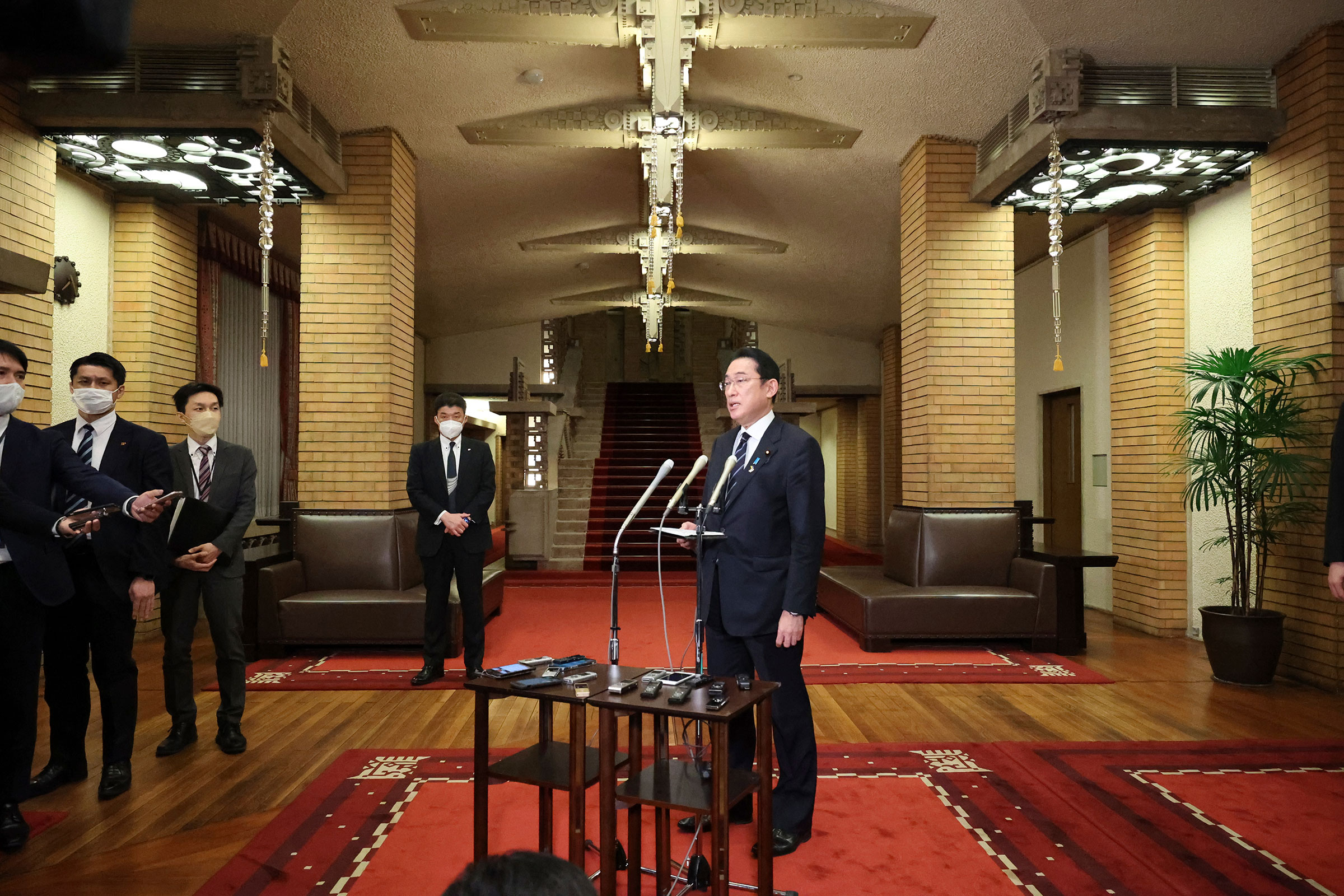
This article is part of The D.C. Brief, TIME’s politics newsletter. Sign up here to get stories like this sent to your inbox.
As Judge Ketanji Brown Jackson gamely fended off questions about antiracism in children’s books during her Supreme Court confirmation hearing, Ukraine continued its defiance of Russia while retaking a Kyiv suburb, and the White House prepared to launch President Joe Biden to Europe to find an offramp for Moscow’s belligerence, another story got buried in the mess.
In fact, while most of Washington watched the World War II-era’s Western Front, the Eastern Front has suddenly sparked some concern. And with recent events between Japan and Russia, Biden may have a sleeper foreign policy crisis on his hands in a place he didn’t expect.
Frustrated by Japan’s sanctions of Russia for its aggression in Ukraine, the Foreign Ministry in Moscow on Monday of this week notified its counterparts in Tokyo that World War II peace treaty talks are over for now. On Tuesday, Japan reacted as expected, declaring such an end to talks “completely unacceptable,” about as strong as you get in diplo-speak.
You see, the Soviet Union and Japan never actually signed a peace treaty after World War II ended in 1945, much like the United States still technically remains at war with North Korea despite active fighting ending in 1953. Moscow and Tokyo signed a declaration of peace in 1956, which allowed cultural and economic exchanges to continue while diplomats hammered out a deal on a series of four remote islands the Soviets had seized in the final days of the war. In Russia—and the Soviet Union before—they are the Kurils; in Japan, they’re the Northern Territories.
Russia clearly doesn’t have the military bandwidth to launch a second front in its quest to rebuild the former Soviet Union—if not the Russian Empire itself. But it knows it has just enough juice to rattle analysts in Tokyo and beyond. Technically, post-World War II Japan isn’t allowed to have a military and nominally relies on foreign might. But Western resistance to a Japanese military force faded over time, and Tokyo has built up its capabilities for a defensive posture with a guiding hand from the West.
All of which means an errant Russian attack on Japan could force the United States into a live-fire war that Biden has pledged not to join with American troops. It could coerce Washington to back up with force its rhetoric that Moscow is engaging in “war crimes” (language that is unhelpful, both sides concede, because it ultimately demands international action).
None of that reassured Japan last week, though, when two waves of Russian warships navigated Japan’s Tsugaru Strait—as is allowed and in plain view of Japan’s officials—as Moscow seemed to move backup forces toward Ukraine. According to DefenseNews, the four ships are the entirety of Russia’s Pacific Command’s amphibious fleet, which suggests Moscow is realizing it needs backup over in Vladivostok.
Which is why Russia’s decision to warn Japan that its de facto peace is at risk brought with it a screech on the diplomatic record player. Russia clearly has plenty on its plate as it moves forces for backup and faces down a unified Europe gathering at NATO headquarters this week. Japan’s sanctions have been escalating, and following the West’s lead, Japan revoked Russia’s trading loophole and said it would start taking Ukrainian refugees.
But there’s always a risk for Washington, especially when it is distracted. Most of D.C.’s political class are watching Judge Jackson’s hearings with a mix of pride, disgust, and disbelief that elected Senators are dealing in such different worlds, temporarily drawing some attention away from Ukraine. You’re seeing strategists in both parties tell clients that the results of this fall’s U.S. elections will not hinge on Ukraine. Inflation is slamming American families, and they’re looking for someone to blame. Interest in the war seems to have hit its peak in the U.S., at least for now.
Yet on the Eastern Front of the former Soviet Union, Russian President Vladimir Putin may have one more move to make. And that is to draw the United States into another World War, one that it’s obligated to join. Decades-old detente is attractive for the liberal post-war world, but if the last months have taught us anything, it’s that Moscow has little appreciation for that stasis. Washington would do well to watch the corner of the Pacific that Russia and Japan share.
Make sense of what matters in Washington. Sign up for the D.C. Brief newsletter.
More Must-Reads From TIME
- The 100 Most Influential People of 2024
- How Far Trump Would Go
- Why Maternity Care Is Underpaid
- Scenes From Pro-Palestinian Encampments Across U.S. Universities
- Saving Seconds Is Better Than Hours
- Why Your Breakfast Should Start with a Vegetable
- Welcome to the Golden Age of Ryan Gosling
- Want Weekly Recs on What to Watch, Read, and More? Sign Up for Worth Your Time
Write to Philip Elliott at philip.elliott@time.com